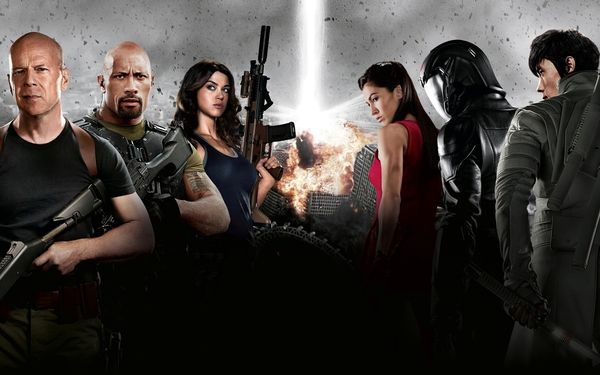G.I. Joe: Retaliation (2013)

“G.I. Joe: Retaliation” (2013), directed by Jon M. Chu, is a high-octane action film that continues the saga of the elite military team known as G.I. Joe. Serving as a sequel to “G.I. Joe: The Rise of Cobra” (2009), the film dives deeper into the world of international espionage, loyalty, and the battle against global terrorism.
The plot follows the surviving members of the G.I. Joe team as they face betrayal from within their own ranks. Framed for crimes they did not commit and branded as traitors, the Joes find themselves on the run from their own government. Meanwhile, Cobra Commander, the nefarious leader of the terrorist organization Cobra, orchestrates a plan to seize power and plunge the world into chaos.
Central to the film’s narrative is the theme of revenge and redemption. As the surviving Joes—including Roadblock (played by Dwayne Johnson), Lady Jaye (portrayed by Adrianne Palicki), and Flint (played by D.J. Cotrona)—seek to clear their names and uncover the truth behind the conspiracy, they are driven by a desire for justice and the chance to redeem their honor.

Visually, “G.I. Joe: Retaliation” delivers pulse-pounding action sequences and breathtaking set pieces that showcase the skills and weaponry of the G.I. Joe team. From intense firefights in exotic locations to daring aerial maneuvers, the film’s cinematography captures the adrenaline-fueled intensity of modern warfare and covert operations.
The ensemble cast brings depth and charisma to their respective roles, breathing life into the iconic characters of the G.I. Joe universe. Dwayne Johnson shines as Roadblock, a formidable soldier and natural leader who must navigate the complexities of loyalty and betrayal. His chemistry with Adrianne Palicki’s Lady Jaye and the camaraderie among the Joes add layers of camaraderie and resilience to the film’s narrative.

Thematically, “G.I. Joe: Retaliation” explores the sacrifices made in the pursuit of justice and the moral ambiguity of warfare. The film examines the blurred lines between heroism and vigilantism, highlighting the personal and ethical dilemmas faced by soldiers who operate in the shadows of government oversight.
Director Jon M. Chu infuses the film with a sense of urgency and spectacle, balancing character-driven drama with adrenaline-pumping action. His direction ensures that each action sequence serves not only to entertain but also to advance the plot and deepen the audience’s investment in the fate of the characters.

Beyond its action-packed exterior, “G.I. Joe: Retaliation” is a story of resilience and unity in the face of adversity. As the Joes confront overwhelming odds and powerful adversaries, they must rely on their training, ingenuity, and unwavering belief in each other to achieve victory. Their journey becomes a testament to the strength of the human spirit and the bonds forged in the heat of battle.
In conclusion, “G.I. Joe: Retaliation” (2013) is a thrilling continuation of the G.I. Joe saga, blending pulse-pounding action with themes of loyalty, betrayal, and the pursuit of justice. Through its dynamic characters, explosive set pieces, and resonant storytelling, the film captivates audiences and reaffirms the enduring appeal of the G.I. Joe franchise in the realm of modern action cinema.











